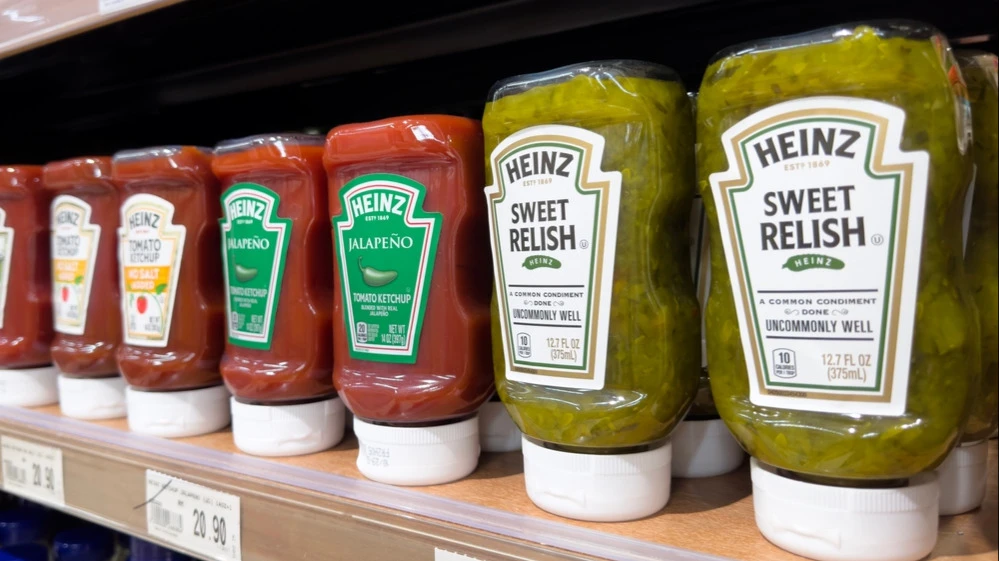Kraft Heinz is preparing to split its business, WSJ has learned. How will this affect the stock?
Kraft Heinz stock has lagged the market since Warren Buffett's mega-merger a decade ago

Kraft Heinz is preparing to split its business a decade after a high-profile merger of its two biggest packaged-food brands orchestrated by Warren Buffett and Brazilian investment firm 3G Capital Partners, sources tell The Wall Street Journal. The split companies together could be worth more than one.
Details
Kraft Heinz may spin off a large portion of its grocery business, including many Kraft brands, into a new entity with a market value of up to $20 billion, WSJ sources say. Products such as pastas and some sauces, including Heinz ketchup and Grey Poupon mustard, would remain in the current business. The new business will include higher growth areas such as hot sauces, dressings and condiments. These products are better aligned with current consumer tastes than processed meats and cheese, the publication notes.
According to WSJ sources, the deal could be finalized in the coming weeks. However, the company is also discussing other scenarios. At the same time, the board of directors has not yet approved the final decision, the publication writes.
Why would Kraft Heinz split
Kraft Heinz expects the two separate businesses to be collectively worth more than its current market capitalization of $31 billion. All 10 years after Kraft and Heinz merged, the combined company's stock lagged the S&P 500 broad market index.
"As we said in May, Kraft Heinz is considering possible strategic transactions to enhance shareholder value," a company spokesperson told the WSJ.
Berkshire, led by Warren Buffett, and investment fund 3G Capital in 2013 purchased ketchup maker H.J. Heinz for more than $23 billion. Two years later, the merger of Heinz and Kraft took place, creating one of the world's largest food and beverage companies. The 2015 deal was supposed to herald a new future for the U.S. packaged foods market and showcase the ambitions of 3G Capital and Buffett, but instead went down in history as a failure, the WSJ notes. After the companies merged, some of their popular products began to lose ground due to shifting consumer preferences. Shoppers began to focus more on fresher and less processed foods.
At the time of the merger, Kraft and Heinz had combined revenues of about $28 billion. The portfolio includes well-known brands including Oscar Mayer meats, Maxwell House coffee, Jell-O jelly, Planters nuts, as well as Kraft cheese products and Heinz ketchup.
Four years after the merger, the company announced rising costs and severe pressure on brand value, taking a $15 billion impairment charge on the Kraft and Oscar Mayer brands. 3G's austerity model called zero-based budgeting, which had previously made the investment firm billions, didn't work here. By the end of 2023, 3G sold its entire stake in Kraft Heinz, and Berkshire now remains the company's largest shareholder with a stake of about 28%.
Since the merger, Kraft Heinz sales have stagnated and profits are down from the first year after the deal, the WSJ summarizes. Since then, the company's stock has fallen more than 60% and its market capitalization has shrunk by about $57 billion.
What else is Kraft Heinz doing
Demand for key Kraft Heinz products - from Lunchables ready-to-eat meal kits and Capri Sun beverages to macaroni and cheese and mayonnaise - is waning. The company is trying to rethink its portfolio and invest in healthier products that align with changing consumer preferences, the WSJ writes.
- Kraft Heinz recently announced that it will remove artificial colors from all products sold in the United States.
- In recent years, the company has tried to sell some underperforming brands, including Oscar Mayer and Maxwell House, but without success.
- In May, Kraft Heinz confirmed that it continues to evaluate possible strategic transactions to increase shareholder value.
- The company announced that Warren Buffett's Berkshire Hathaway will no longer hold a seat on its board of directors. Many industry participants took this as a signal of impending changes, WSJ notes.
- This week, Kraft Heinz announced the sale of its baby food and specialty nutrition business in Italy, without disclosing the amount of the deal. "We are deliberately and proactively managing our portfolio," Kraft Heinz president Willem Brandt said at the time.
This article was AI-translated and verified by a human editor
